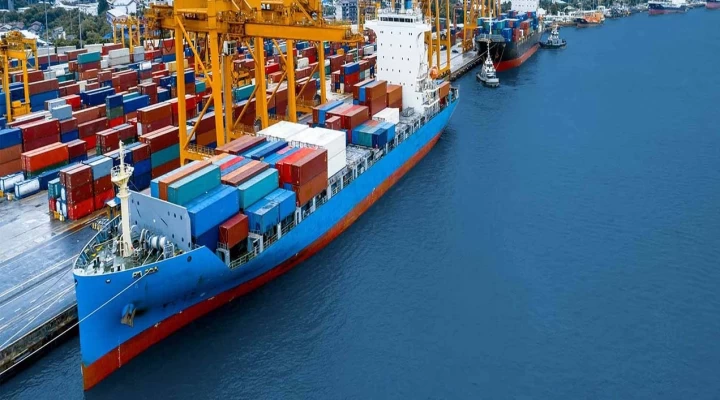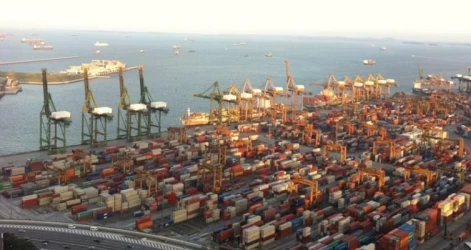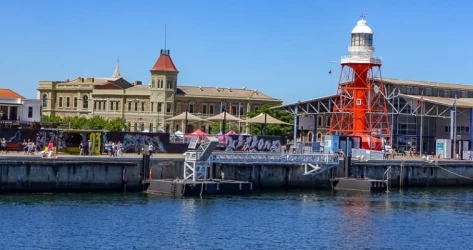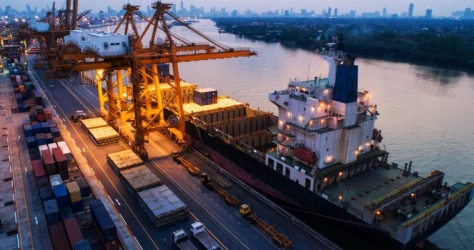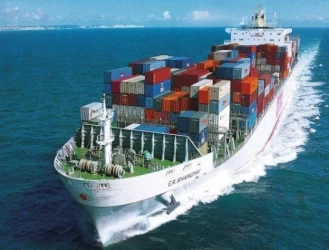Sea freight in Sharjah port
Sharjah Port, located in the emirate of Sharjah, United Arab Emirates, serves as a vital hub for maritime transport in the region. Known for its strategic geographical location, advanced infrastructure, and diverse range of services, Sharjah Port plays a significant role in facilitating international trade and enhancing economic growth in the UAE and beyond. This article provides a comprehensive overview of the maritime transport operations at Sharjah Port, including its history, facilities, services, and future prospects.
Geographical Significance
Sharjah Port's geographical location makes it a pivotal maritime gateway to the Arabian Gulf and the Indian Ocean. Situated approximately 15 kilometers from Dubai, it is ideally positioned for shipping routes connecting Asia, Europe, and Africa. This strategic location not only facilitates the movement of goods but also enhances the port's importance as a logistics hub in the region.
Historical Background
Sharjah Port has a rich history that dates back several decades. Established in the mid-20th century, it has evolved from a small fishing harbor into a modern commercial port. The port has undergone significant development and expansion, particularly in the last two decades, to accommodate the increasing demands of global trade. Today, Sharjah Port is recognized as one of the leading ports in the Middle East, serving a diverse range of industries.
Infrastructure and Facilities
The infrastructure at Sharjah Port is designed to support various maritime activities. Key features include:
- Multi-Purpose Berths: The port has multiple berths capable of accommodating different types of vessels, including container ships, bulk carriers, and oil tankers.
- Container Terminals: Dedicated container handling facilities ensure efficient loading and unloading of cargo. Advanced container handling equipment, including cranes and forklifts, enhances operational efficiency.
- Warehousing and Storage: Sharjah Port offers state-of-the-art warehousing facilities for the storage of goods. The port provides both general cargo and temperature-controlled storage options for perishable items.
- Customs and Logistics Services: The port features integrated customs services to facilitate smooth clearance processes. Additionally, logistics services are available to assist businesses with their supply chain needs.
Types of Maritime Transport
Sharjah Port caters to a variety of maritime transport needs, including:
- Container Shipping: The port is a key player in container shipping, facilitating the movement of goods across international borders. Major shipping lines operate from Sharjah, connecting it to global markets.
- Bulk Cargo Handling: Sharjah Port is equipped to handle bulk cargo, including grains, cement, and chemicals. Its facilities are designed to ensure safe and efficient loading and unloading.
- Ro-Ro Services: Roll-on/roll-off (Ro-Ro) services are available for transporting vehicles and heavy machinery, making the port a valuable asset for automotive and construction industries.
Economic Impact
The maritime transport sector at Sharjah Port significantly contributes to the local and national economy. The port supports numerous businesses, from logistics providers to manufacturers, by facilitating trade and ensuring the timely delivery of goods. It also generates employment opportunities, further boosting economic growth in the region.
Future Developments
Looking ahead, Sharjah Port is set to undergo further developments to enhance its capabilities. Plans include:
- Expansion of Container Terminals: To accommodate the increasing volume of container traffic, the port is planning to expand its container terminal facilities.
- Investment in Technology: Embracing technological advancements in logistics and port operations is a priority. Investments in automation and digitalization will improve efficiency and reduce turnaround times.
- Sustainability Initiatives: The port aims to implement environmentally friendly practices, including reducing emissions and promoting the use of clean energy sources.
Conclusion
Sharjah Port stands as a crucial player in maritime transport, offering robust infrastructure, diverse services, and strategic geographical advantages. As the port continues to evolve and adapt to changing market demands, it is poised to maintain its position as a key hub for international trade in the region. With ongoing investments and a commitment to innovation, Sharjah Port will contribute significantly to the economic growth of the UAE and enhance its global competitiveness.
If you have any specific questions or need further assistance, feel free to ask!

